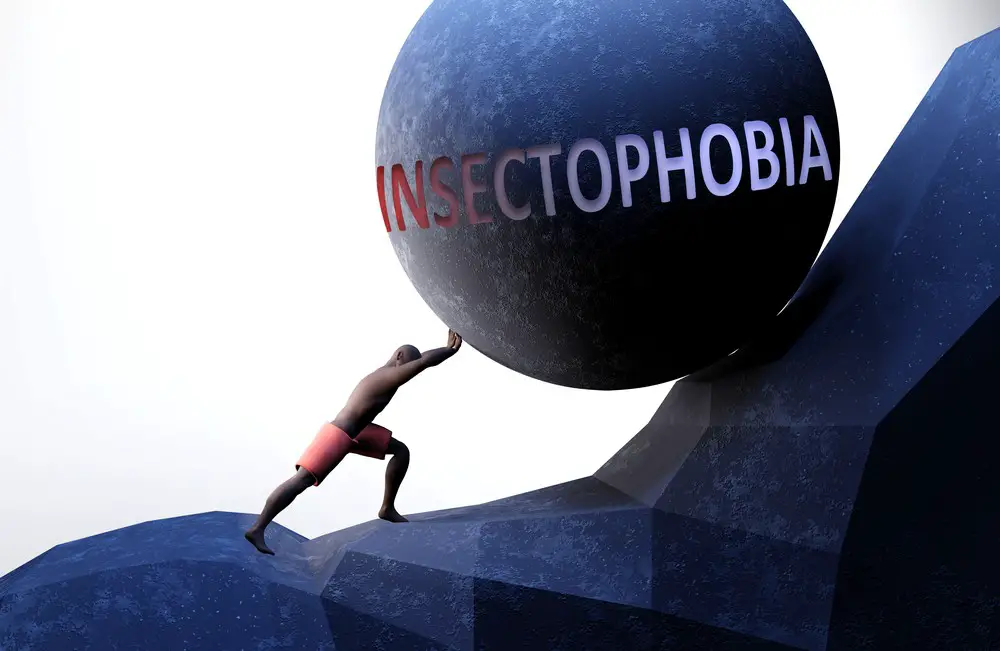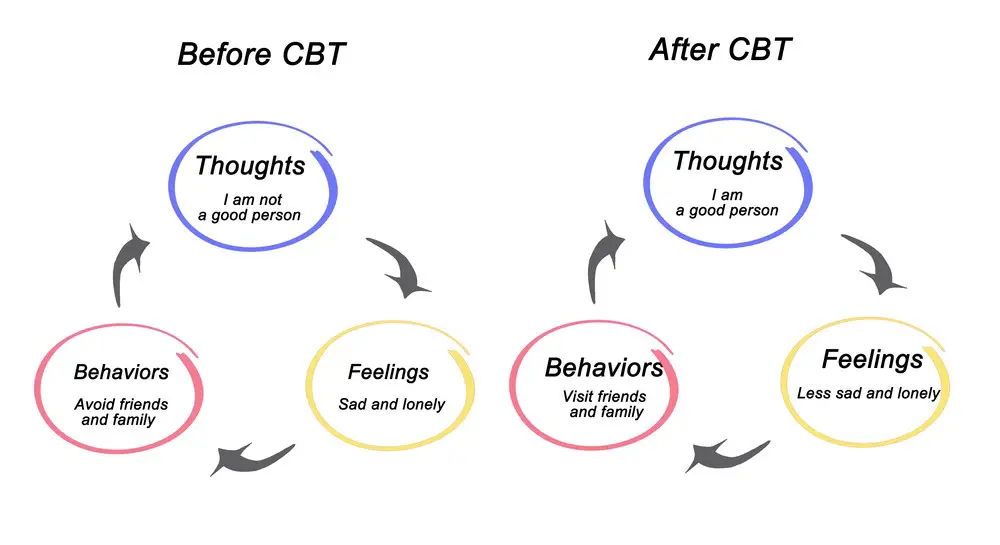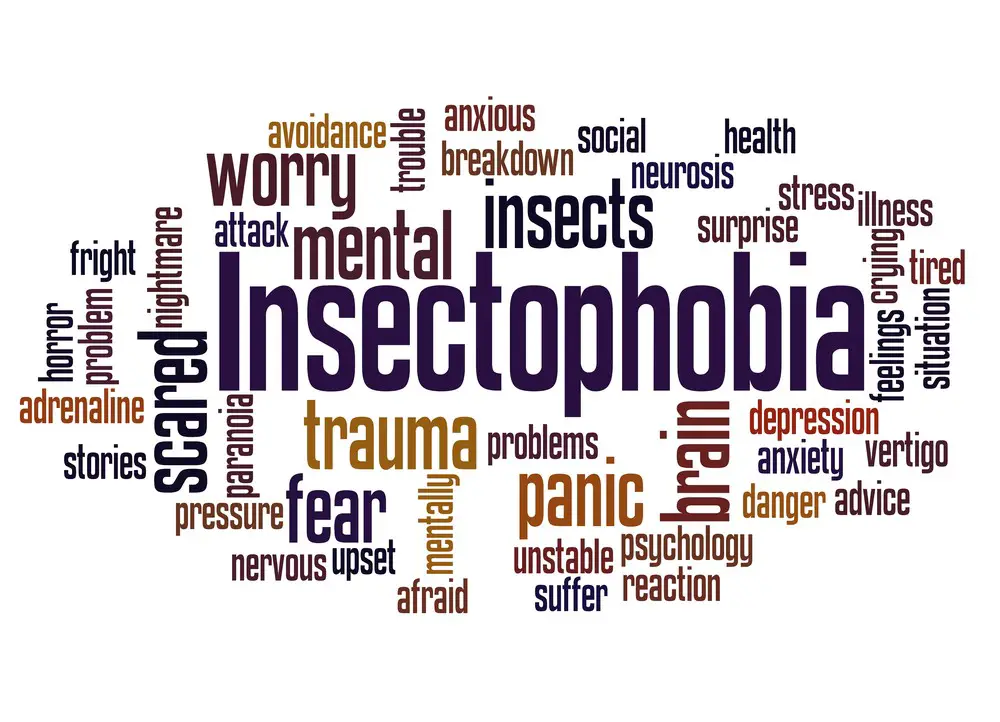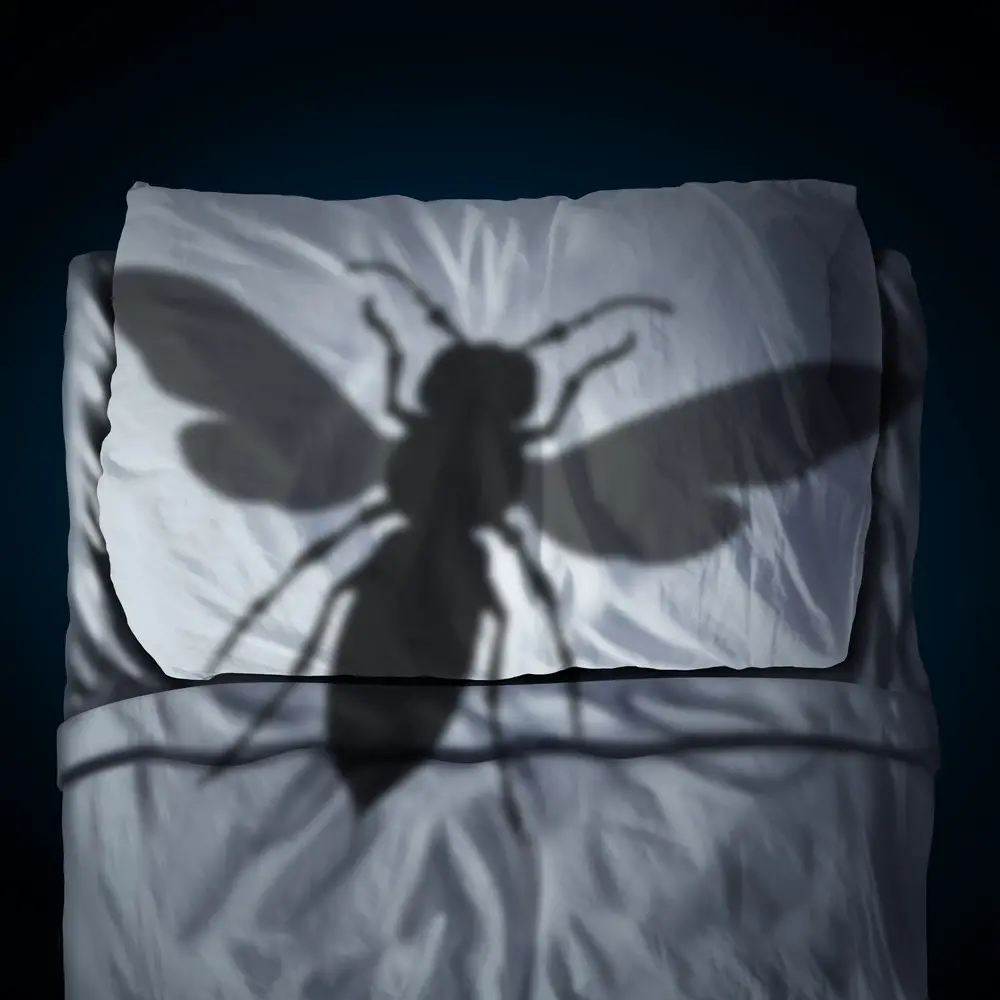As a BetterHelp affiliate, we receive compensation from BetterHelp if you purchase products or services through the links provided
Summer has finally arrived in the north, bringing more prolonged sunshine and opportunities to spend more time in nature. However, suppose you have entomophobia, or quite simply, fear of insects; you may have increased anxiety when you want to enjoy the natural beauty of the outdoors at this time of the year, dreading a close insect encounter.
There are over a million types of insects, and for someone with entomophobia, summer increases the chances of encountering the little critters they fear most. Staying indoors, hence avoidance, is a solution. However, it reinforces the link of their fear with their feeling of danger instead of confronting it,
Why do You Fear Insects?
The fear of insects is among the top things people fear, so you are not alone in your phobia. Yes, some bugs do have the potential to prove dangerous if they sting you, but since most are harmless, it’s their looks that make some people fear them the most.
Therefore, your fear may include being stung by a bee, wasp, or tick or getting a disease from a fly or mosquito. You may also fear a bug infestation to your body or home from a colony of termites, beg buds, or fleas. Finally, entomophobia also includes the fear of encountering an insect inside or outside your home or seeing images of these critters while browsing online, watching television, or perusing your favorite magazine.
The possible cause for your fear of insects may include a past traumatic experience, modeling (when you hear others talk about their fear), or a family history of the phobia. Moreover, in some cases, someone prone to environmental irritation may blame their persistent discomfort on insects.

Types of Entomophobia
You can also have a more specific form of entomophobia. For example, you may not fear all insects but have a fear of only spiders (arachnophobia) or roaches (katsaridophobia). The Cleveland Clinic defines the different types of insect fears in this article and explains the people most at risk for developing entomophobia.
Tips and Advice on Conquering Your Fear of Insects
Whether your entomophobia symptoms range from mild to severe, if it’s affecting your ability to enjoy life, then conquering it will help.
One of the most common symptoms of entomophobia is extreme anxiety when you see or think about insects. Your stress may also lead to excessive thoughts about avoiding insects at all costs, even if it means avoiding going to places where you might encounter some.
The symptoms of the fear of insects are not only restricted to the emotional. They can also include physical ones like itchiness, crawling sensations, heart palpitations, dizziness, chills, trembling, nausea, an upset stomach, and shortness of breath.
Even though some people with other phobias (anxiety disorders, panic disorders, or substance use disorders) may be more likely to develop entomophobia, it’s not considered a specific disorder by the DSM (American Psychiatric Association’s Diagnostic and Statistical Manual of Mental Disorders).
However, it does not mean your phobia cannot be diagnosed or managed. Here are some tips and advice for managing your year of insects.

1. Accept Your Fear
Before starting therapy to overcome your entomophobia, you must accept that you have a problem. Therefore, you must understand that you fear bugs and the root issues that have caused the phobia. Once you have encountered your fear, it becomes easier to deal with it. Read this article in Discover Magazine to help you see bugs in a new light.
However, it’s not easy to encounter your fear alone. Therapy is an excellent way to get to the root problem.
2. Exposure Therapy
Ironically, your fear of insects creates a link in the brain that causes you to cringe every time you think about insects, causing you distress. Exposure therapy aims to gradually introduce you to a situation that usually triggers your symptoms and helps you manage your fear or response.
Exposure therapy has helped many people improve their symptoms and remains one of the most popular and effective ways to treat entomophobia. These are the areas you will work on during exposure therapy:
- You learn breathing and relaxation techniques to practice before going outdoors or wherever you’ll have exposure to insects.
- You are encouraged to talk about your entomophobia.
- Practice includes seeing insects live in a controlled setting and viewing insects in photos and videos.
- As you progress with the exposure therapy, the next step is to introduce you to insects in situations where you encounter them daily, for example, walking in a park, spending a day at the beach, etc.
- However, the therapist may also use flooding therapy, where you may have to start with the encounter you fear most instead of using an incremental approach. They may use imaginary encounters or VR exposure to create an actual situation.
The idea behind exposure therapy is to work toward overcoming your fear. In a sense, it’s the same principle as when you fall off a horse or bike. The only way to confront your failure is to overcome it quickly.

Cognitive Behavioral Therapy
CBT combines cognitive and behavioral therapy. It aims to replace dysfunctional thoughts with more realistic ones about a situation, such as your fear of insects. Changing how you interpret situations helps to make it easier to deal with your phobia. Exposure therapy is part of CBT, so a mental health therapist may combine the two forms of therapy.
Hypnotherapy
A hypnotherapist may use hypnotherapy to find the answer to the underlying cause of your entomophobia. Hypnotherapy uses a guided relaxation technique that can help to alter your perception of insects by using various relaxation techniques.
Medications
If you have severe physical or emotional symptoms caused by your anxiety, your doctor may prescribe medication to help alleviate them. These may include an antidepressant to relieve anxiety. However, these are a last resort in extreme cases.
Life Style
You can relieve symptoms like panic attacks or stress by practicing yoga or learning meditation. Yoga and meditation require learning breathing techniques that help you better manage panic attacks and calm your body during insect encounters.

Tips for Friends and Family of Someone Struggling With Entomophobia
If you know someone with entomophobia, it’s important to be understanding and supportive. Here are some tips that can help:
1. Listen Empathetically
Listen without judgment or criticism when your loved one is talking about their fear of insects. Offer a sympathetic ear instead of trying to provide solutions right away. They need a safe place to vent their anxieties and fears before attempting to find ways to manage them.
2. Be Patient
It takes time for people to conquer their fear, so be patient and encouraging throughout the process. Let your loved one take steps toward overcoming their fear.
3. Educate Yourself
Learn as much as you can about entomophobia and anxiety disorders, in general, to better understand your loved one’s condition. This will give you the knowledge and tools to help them manage their fears.
4. Be Supportive
Encourage your loved one to seek treatment from a professional, such as therapy or hypnotherapy. They must be surrounded by people who support and believe in them throughout this journey. Showing that you care may make all the difference in helping someone with entomophobia conquer their fear of insects.
Final Take
Your fear of bugs can easily rub off onto your children, especially if demonstrated in front of them. However, some children may develop a fear without reason or after being hurt by an insect. Talk to them about insects, explaining the differences between the varieties and why they are essential. The more you learn to control your fear of insects, the better for your health while also allowing you to teach your children how immensely beneficial they are to the natural world.
FAQs
What causes fear of insects?
Fear of insects, or entomophobia, can be caused by an irrational fear that the person has developed over time. It can also be triggered by a traumatic experience with an insect, such as being stung or bitten. Additionally, it can stem from cultural influences and environmental factors.
How can you manage fear of insects?
Managing your entomophobia requires patience and consistency. Exposure therapy and cognitive behavioral therapy (CBT) are the most common treatments for this phobia. Exposure therapy gradually introduces you to situations that trigger your symptoms, while CBT helps replace negative thoughts with more realistic ones about the situation. Hypnotherapy is another option to help identify the underlying cause of your fear of insects and alter how you perceive them.
What tips can friends and family of someone with entomophobia give?
Friends and family members should be understanding and supportive regarding a loved one’s entomophobia. Offer an empathetic ear, be patient, educate yourself on the condition, and encourage your loved one to seek professional treatment such as therapy or hypnotherapy. Showing that you care may make all the difference in helping someone with entomophobia conquer their fear of insects.
What lifestyle changes can you make to help reduce fear of insects?
Practicing yoga and learning meditation can help reduce stress or panic attacks associated with entomophobia. Yoga and meditation require learning breathing techniques that help you better manage these attacks and encourage physical relaxation during insect encounters. Additionally, staying away from media reports about insect-related illnesses or dangers may be beneficial in reducing your fear. It is also important not to pass on this fear to your children as it may be difficult for them to overcome later on in life.
- Breaking the Silence: Why Men’s Mental Health Matters More Than Ever - April 15, 2025
- How to Transform a Home’s Patio Space into a Relaxing Space - March 23, 2025
- 5 Strategies to Use a Cell Phone to Help Manage Your Stress - March 23, 2025
This site contains affiliate links to products. We will receive a commission for purchases made through these links.



